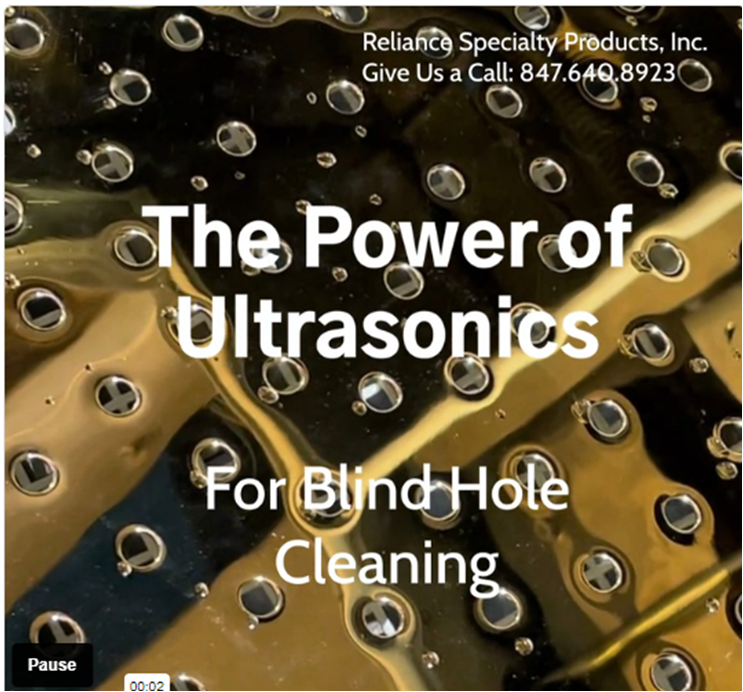Regulatory Changes to nPB - March 2022
Reliance Specialty Products wants to let you know about regulatory changes that are happening with n Propyl Bromide and how we can help if you decide you want to switch-out of nPB or improve your cleaning equipment.
nPB is NOW REGULATED under NESHAP, the National Emission Standards for Hazardous Air Pollutants by the US EPA and is now considered a Hazardous Air Pollutant (HAP).
Unexpectedly, on January 5th, 2022, n Propyl Bromide became a HAP (Hazardous Air Pollutant) regulated under NESHAP. The specifics of how it will be regulated under NESHAP will be provided by the USEPA at some time in the future.
IMPLICATIONS OF NESHAP REGULATION OF NPB
First, there are Air Permitting and State Reporting Impacts
nPB was formerly only a VOC (Volatile Organic Compound), but not a HAP under NESHAP. Therefore, the type of operating permit you currently have is likely a simple air-operating permit for VOC emission. If you decide to stay with n Propyl Bromide, you will need to switch-over to a HAP operating permit.
Permits are issued by each state and each state's permitting rules vary. For a HAP, there are typically small emitter permits and large emitter permits known as Title 5 permits.
The HAP permits typically are more expensive and require periodic reporting to establish compliance with the HAP requirements and report the amount of HAP's emitted.
HAP permits also require more comprehensive vapor degreaser containment features and operating procedures. As mentioned earlier, specific requirements under the NESHAP regulations for nPB are not yet issued.
Also, each state's DEQ, Department of Environmental Quality will need to address the re-permitting and final reporting requirements for nPB now that it is a HAP.
The second implication of NESHAP is Shipping Classification Impacts
nPB is currently not regulated for shipment. However, is likely to be classified by the DOT as hazardous for shipment at some point and treated in the same manner as TCE, MC & PERC.
Our understanding is that this will occur as a separate action by the DOT (Department of Transportation).
The third implication of NESHAP classification is Waste Disposal Impacts
Currently nPB is not a RCRA hazardous waste for disposal. RCRA is the Federal Resource Conservation and Recovery Act. However, we anticipate in a similar manner to the other NESHAP solvents, n-Propyl Bromide will likely be classified as a RCRA hazardous waste for disposal.
The bottom line is YOU CAN STILL USE NPB EVEN THOUGH IT IS NESHAP REGULATED
You can continue use nPB. Companies have been using TCE, PERC and MC under NESHAP for 25 years. And NESHAP in and of itself does not preclude continued use, it is just more involved.
Immediately, the main issue with nPB is your state air permitting (as discussed earlier). Since each state handles its own air VOC, HAP permitting, you will need to check with your state for their immediate requirements for re-permitting of nPB.
TSCA 6A - UPCOMING ADDITIONAL REGULATION OF nPB, TCE, PERC AND MC
The regulation of nPB, TCE, PERC and MC is underway under TSCA 6A, the Toxic Substances Control Act. This regulation gives the US EPA broad authority to regulate – and is capable of resulting in a phase-out or ban of n propyl bromide or any of the other solvents they are considering. A ban, if it occurs, would likely have a phase-out period.
TCE a couple of years ago was proposed banned for vapor degreasing. The USEPA Proposal was 18 months for phase out of manufacturing and a 36 month phase out for use. Thus, there was a 3-year period. The earlier proposal for TCE was withdrawn and is now again going through the process under TSCA 6 A along with nPB, PERC and MC.
Proposed regulations under TSCA 6A for nPB, TCE, PERC and Methylene Chloride are expected to be issued this year 2022
CONCLUSION
There is no immediate need to move out of nPB, but you may need to change permitting immediately or when your State otherwise requires it. You will need to comply with the HAP permit reporting.
HERE IS HOW RELIANCE CAN HELP:
First…We can help you switch into AeroTron-100, a safer solvent, as we have done for many of our current nPB customers.
AeroTron-100 is the next generation solvent that is a direct, drop-in replacement for nPB.
Next, Reliance can also help you with assessing your current vapor degreaser and recommending upgrades or modifications.
Please give us a call at 847.640.8923 or visit us at relspec.com
We can test Clean sample parts for you in the AeroTron-100 or
We can provide you a sample of the AeroTron-100 or
We are available for a technical consultation to help you navigate options.
Reliance takes a comprehensive approach to helping you assess your situation and your options.





